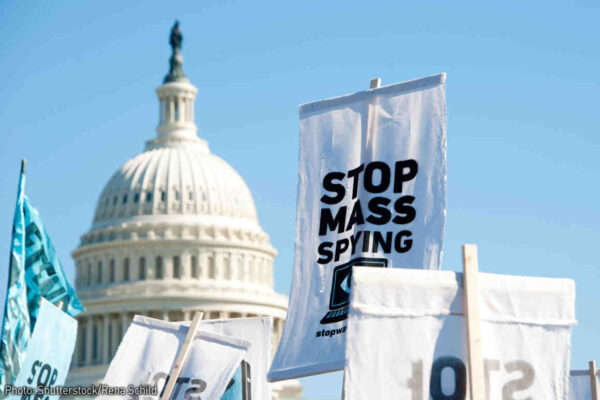Federal Appeals Court Decision Endangers Americans’ Protections Against NSA and FBI Spying
DENVER — In a sharply divided ruling, the 10th Circuit Court of Appeals today wrongly held that the warrantless surveillance of Jamshid Muhtorov — a legal permanent resident whose email communications were searched by the U.S. government under Section 702 of the Foreign Intelligence Surveillance Act (FISA) — was lawful. The court also ruled that the egregious seven-year delay leading up to Mr. Muhtorov’s trial did not violate the Speedy Trial Act.
The decision came in United States v. Muhtorov, a challenge mounted by the American Civil Liberties Union and the Office of the Federal Public Defender of Colorado in a criminal case where they represent Mr. Muhtorov. Mr. Muhtorov, who hails from Uzbekistan, was the first person to receive notice from the government about the monitoring of his communications under Section 702 after whistleblower Edward Snowden revealed the breadth of the NSA’s mass surveillance in 2013.
“We don’t give up bedrock Fourth Amendment protections when we communicate with family, friends, and colleagues abroad, contrary to the court’s ruling today. Under Section 702, the government for years has amassed our online messages, chats, and emails without a warrant, violating the constitutional rights of countless Americans, including Mr. Muhtorov.” said Patrick Toomey, senior staff attorney with the ACLU’s National Security Project. “Mass surveillance threatens all of us. The FBI and NSA don’t have a free pass to seize and sift through our most sensitive communications, and we will keep fighting to ensure they can’t violate the Constitution.”
Mr. Muhtorov, a prominent human rights defender who faced persecution by Uzbekistan’s ruling regime, came to the United States after receiving political asylum. Shortly after Mr. Muhtorov arrived in the United States in 2007, the U.S. government began surveilling him, and in 2012, it charged him with attempting to provide material support to the Islamic Jihad Union in Uzbekistan.
For years, federal agents tracked Mr. Muhtorov’s movements, installed bugs in his home, and listened to the intimate details of his family life. They recorded his phone calls and intercepted untold amounts of his electronic communications. Before his trial, Mr. Muhtorov sought to suppress evidence obtained or derived from Section 702 and moved for disclosure of the government’s surveillance, but these motions were denied by the district court.
Under Section 702, the government intercepts the international communications of hundreds of thousands of people, including people living in the United States. The government stores these communications in massive databases, retains them for years, and searches them repeatedly for information about people in the United States — including in domestic criminal investigations. This highly controversial statute allows the NSA to engage in dragnet, warrantless surveillance of Americans’ international phone calls, emails, chats, and web-browsing.
As Judge Lucero wrote in dissent from today’s decision, Americans “do not lose their protected privacy interests when they communicate with foreigners abroad.” He warned that the “vast scope” of the government’s surveillance under Section 702 and agents’ “minimally fettered” access to databases storing Americans’ communications “creates the potential for the evisceration of Fourth Amendment protections for U.S. persons who communicate with persons abroad.”
The decision is here: https://www.aclu.org/legal-document/us-v-muhtorov-10th-circuit-opinion



